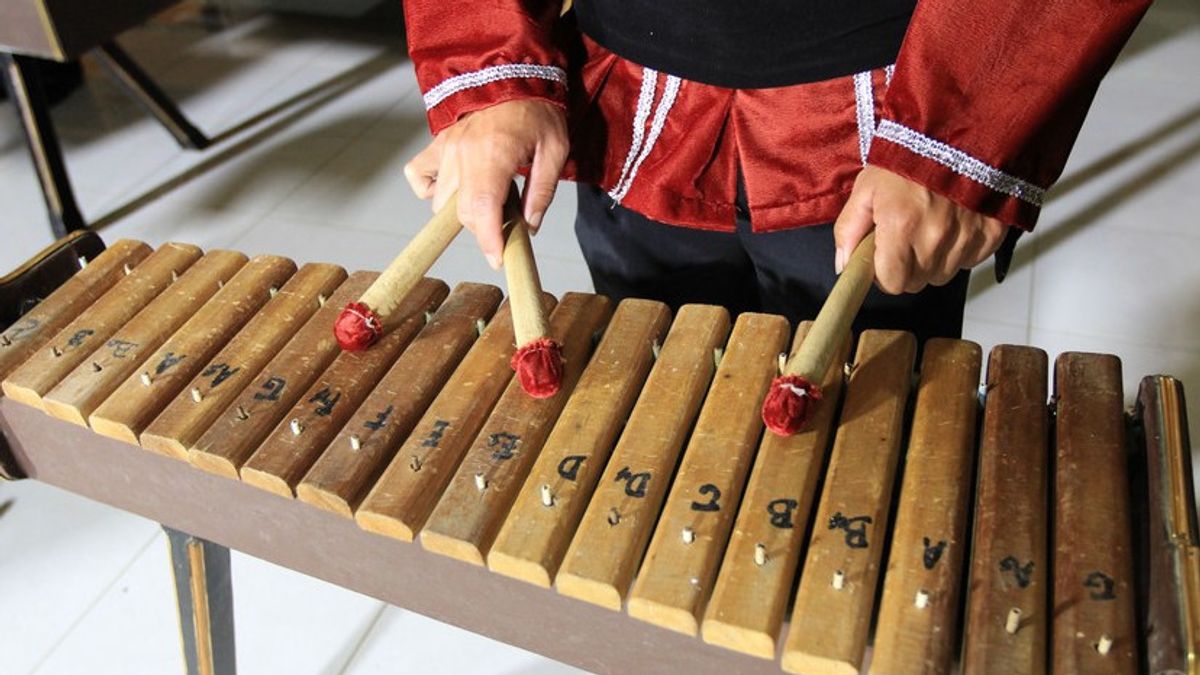JAKARTA - In a historic and proud moment for Indonesia, Kolintang, a traditional musical instrument typical of Minahasa, North Sulawesi, was officially recognized as part of UNESCO's Representative List of the Intangible Cultural Heritage. This was announced in the 19th session of the Intergovernmental Committee for the Safeguarding of the Intangible Cultural Heritage in Paraguay, December 5, 2024, at 22.00 WIB.
The Minister of Culture, Fadli Zon, in his virtual speech expressed his appreciation to all parties who contributed to this achievement.
"Colintang is not just a musical instrument, but a symbol of harmony, unity, and creativity of the Indonesian people. This recognition is proof of our shared commitment to preserving the nation's cultural wealth," said Minister Fadli.
This admission also reflects the intercultural value of Kolintang, which has similarities with Balafon, traditional musical instruments from Mali, Burkina Faso, and Crypte d'Ivoire in West Africa. Indonesia's collaboration with the three countries is proof that traditional music is able to bridge geographical and cultural differences.
"Although it comes from different traditions, Kolintang and Balafon show that music is a universal language that can unite us in mutual rhythm and creativity in the midst of differences," he added.
Minister Fadli Zon also expressed respect and banggsa to the entire Kolintang community in Indonesia, from musicians, craftsmen, to cultural practitioners who have worked hard to maintain the sustainability of this musical instrument.
"We are grateful for all of your dedication in ensuring Kolintang stays alive and continues to inspire future generations," he said.
This UNESCO recognition also brings great responsibility to continue to preserve and promote Kolintang in the national and international arenas. Minister Fadli Zon stressed that this cultural heritage must be a bridge to interculture dialogue and a link between generations.
SEE ALSO:
"We hope that this recognition can increase global awareness of the importance of intangible cultural heritage, as well as strengthen cross-border cooperation in efforts to preserve Kolintang and Balafon," he said.
Kolintang's recognition includes five important domains of Intangible Cultural Heritage: oral traditions, performing arts, social and ritualistic practices, ecological knowledge, and traditional crafts. More than that, Kolintang is expected to be a catalyst for change that is able to exceed geographic, cultural and language boundaries, and supports the achievement of the 2030 Agenda for Sustainable Development.
"The Ministry of Culture is ready to support and be committed to collaborating with all levels of society in efforts to accelerate, develop, and develop culture, especially in the context of Intangible Cultural Heritage, as well as encouraging an inclusive cultural ecosystem," concluded Minister of Culture Fadli Zon.
The English, Chinese, Japanese, Arabic, and French versions are automatically generated by the AI. So there may still be inaccuracies in translating, please always see Indonesian as our main language. (system supported by DigitalSiber.id)


















